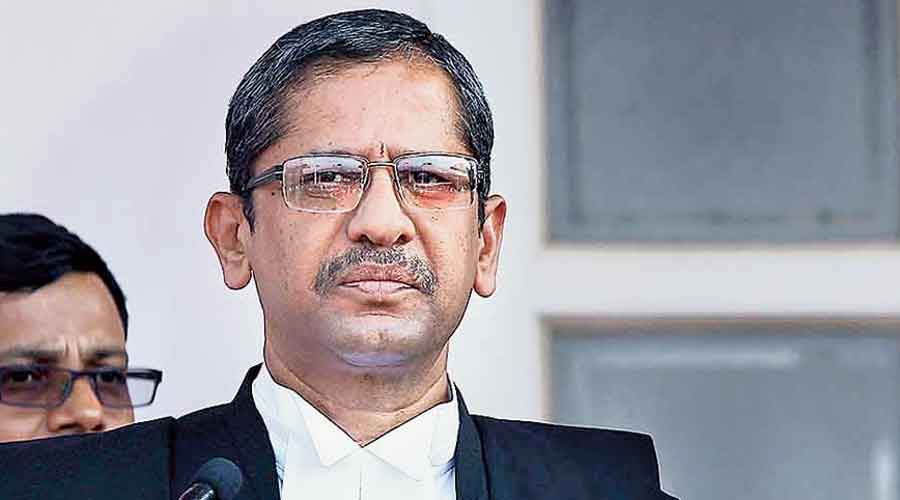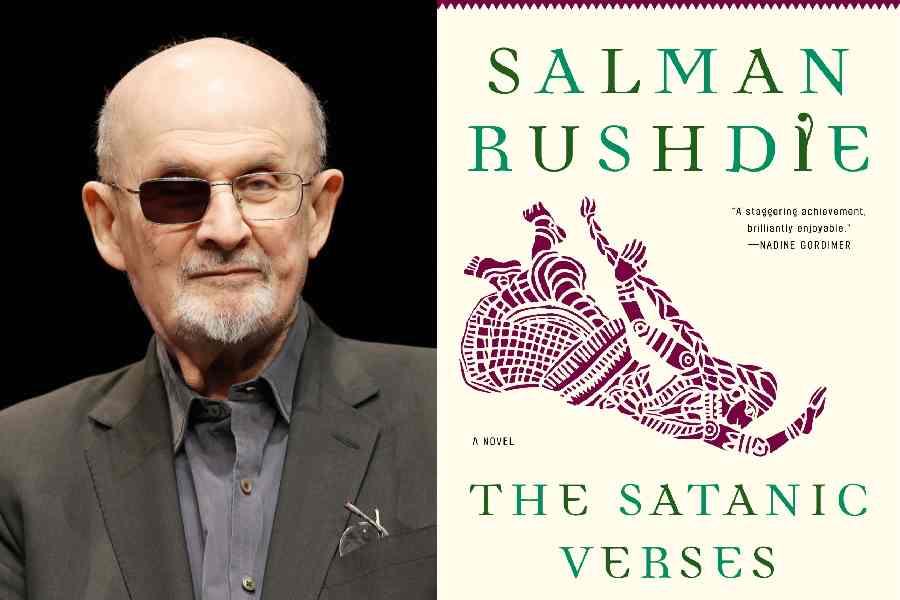Chief Justice N V Ramana on Tuesday said the legal profession is not about profit maximisation but for service to the society. Speaking at a function organised by the National Legal Services Authority (NALSA) to observe the "Legal Services Day", Ramana said students, educated in law, are empowered to be the voices of vulnerable and marginalised sections of the society.
"Your decision to join the legal aid movement will pave the path for a great career. This will help you inculcate empathy, understanding and a sense of selflessness. Remember, unlike other professions, the legal profession is not about profit maximization, but about service to the society," the CJI said.
Ramana said he was very happy to see Union Law Minister Kiren Rijiju's personal inclination towards the progress of legal services authorities. Rijiju had addressed the function and expressed concern over unpalatable remarks being made on social meida against judges. The CJI further said, "I hope that under his leadership, the existing roadblocks in the growth of legal services authorities including the infrastructural issues will be taken care of with prompt intervention. I am glad that he fully understands the hard work put in by Judges."
He expressed pleasure at seeing young law students who have shown enthusiasm in participating in the moot court competitions organized by the legal services authorities. "I honestly feel that you all are doubly privileged. Firstly, you are privileged to be educated in the premier institutes of the country, where information and knowledge is available at your fingertips. Secondly, being educated in law, you are empowered to be the voices of those who have none," he said.
"It is your duty to remain alert about the social realities around you and be mindful about your role in responding to the same. I find it immensely beneficial for the law students that through the legal services authorities, they are coming face to face with the grass-root realities of our country. What I find more beneficial is that these students are becoming major players in the legal aid movement. They are essential for expanding the outreach of legal services to every corner of the country," the CJI added.
Quoting Swami Vivekananda and Martin Luther King Jr, the CJI said the actual legal aid movement started much before the country's Independence, during the freedom struggle. "Several legal stalwarts used to offer their pro-bono legal services to our freedom fighters and fought against the might of colonial powers," he said.
Ramana said the growth of the legal aid movement is reflected in our Constitution, wherein the expression 'Justice: Social, Economic and Political' finds special place in the Preamble.
"It reflects the seriousness of the Members of the Constituent Assembly about the notion of Justice and its ambit. Earlier, the idea of legal aid was confined to court rooms. Notions of access to justice were understood from traditional viewpoints. But, over the course of 26 years, the legal services authorities have broken the traditional notions of legal aid and have given an expanded meaning to access to justice. Today, the role of legal services authorities is not constrained merely to the provision of court based legal representation..," he said.
The CJI added the continuous upward trend of reaching an amicable solution through alternate dispute resolution mechanisms would proportionally reduce the burden on courts. He also launched the iOS version of the Legal Services application and also informed that NALSA's online portal opened its services in more languages.
"This is a commendable achievement in removing the language barrier, leading the path towards accessibility. One more initiative, which I would like to commend is the launching of this short film festival on legal awareness. I have been informed that through this competition, the authorities are aiming to tap the potential of young and energetic school going students. I believe that this initiative would provide an opportunity to connect with society to the young generation. This competition would open a window for these students to bridge the existing inequities within our society," Ramana concluded.











